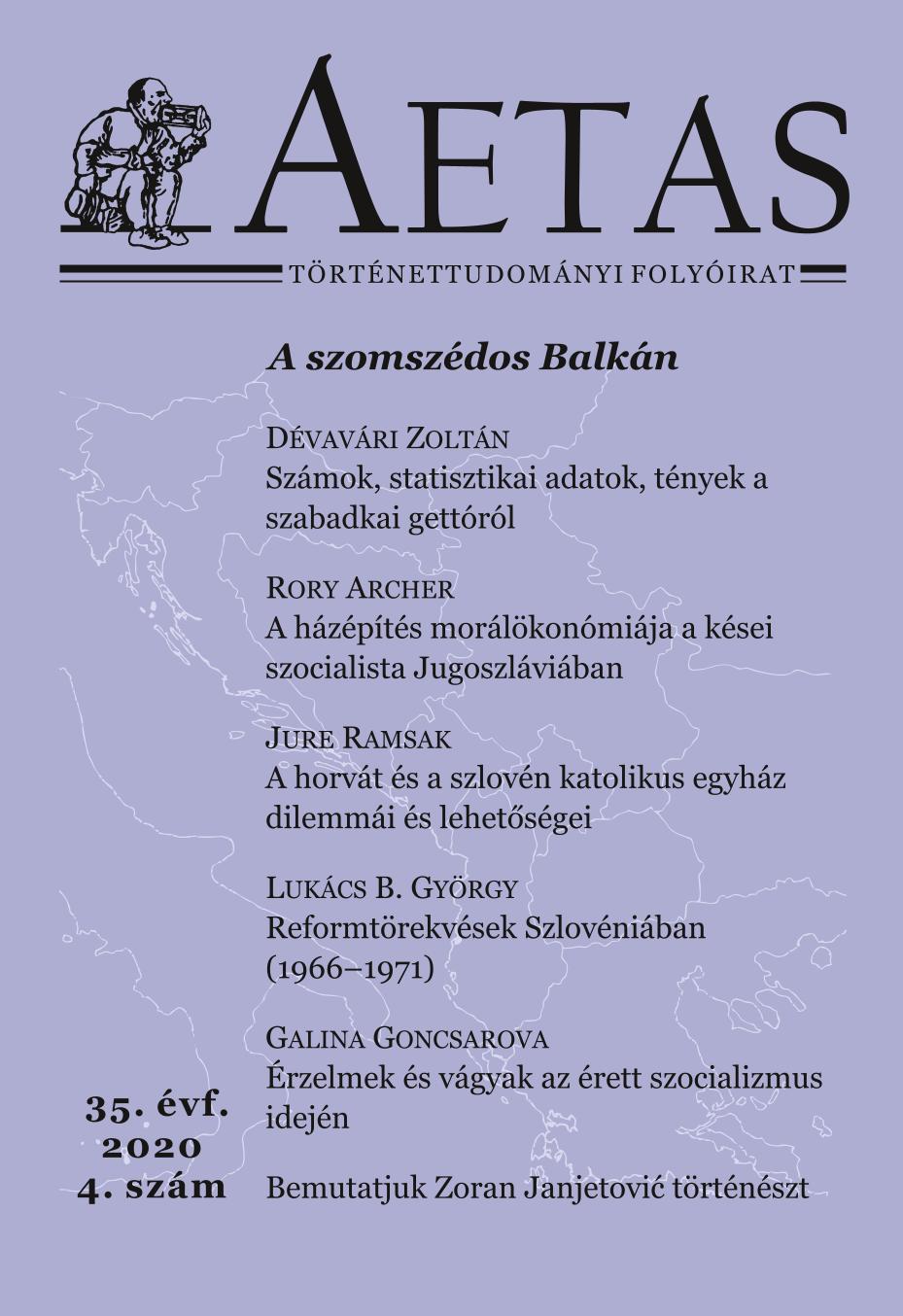A horvát és a szlovén katolikus egyház dilemmái és lehetőségei a késő szocialista Jugoszláviában
Dilemmas and Choices of the Croatian and Slovenian Catholic Church during the Late Yugoslav Socialism
Author(s): Jure RamšakSubject(s): Post-War period (1950 - 1989)
Published by: AETAS Könyv- és Lapkiadó Egyesület
Summary/Abstract: The paper focusses on Slovenia and Croatia as two predominantly Catholic religious milieus within multi-confessional Yugoslavia, which nevertheless exhibited notable differences in the period of late socialism, differences that are partly attributable to distinct historical circumstances and partly to a different state of relations between the Catholic Church and the Communist Party in either country. Although the choices of the leaderships of the Roman Catholic Church in the two republics in the late 1980s may seem obvious from today’s point of view, the paper highlights various dilemmas encountered by this religious community in social as well as political contexts. The latter was largely the result of diverging Party religious policies in the two republics. By analysing a vast array of public and archival documents, the paper illustrates the cautious positioning and choices of the Roman Catholic Church in Slovenia, which up to the early 1990s had always avoided politicisation. Through a comparative analysis of diplomatic documents of the Yugoslav embassy to the Holy See, the paper traces the pronounced process of ethnicization of religion in Croatia, which left increasingly less space for dialogue. Although warnings about the danger of such choices came even from the Vatican, the representatives of the Roman Catholic Church as well as their Party counterparts insisted on their positions and with their rigidity paved each other’s ways to (problematic) decisions the consequences of which became patent during post-socialism.
Journal: AETAS - Történettudományi folyóirat
- Issue Year: 2020
- Issue No: 4
- Page Range: 44-57
- Page Count: 14
- Language: Hungarian

